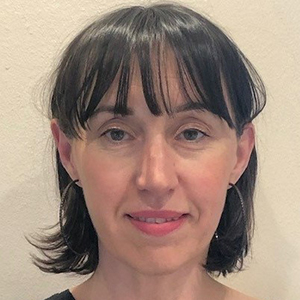UKRI monograph open access policy coming soon: here’s what you need to know

Are you ready for the new UKRI monograph open access policy?
From 1 January 2024, monographs, book chapters or edited collections acknowledging funding from UKRI or any of its councils must be made open access (OA) within 12 months of publication. This is the first time that long-form research outputs have been included in UKRI’s open access policy. Not only does the new policy align with the approach of other funders such as the Wellcome Trust, it also implements the government’s firm commitment for open publication of publicly-funded research.
However, it is important to recognise that the OA landscape for long-form research outputs is less mature than for short-form outputs such as journal articles, and this will be a significant change for funded authors. Those affected by the changes may have queries or concerns, but UKRI’s OA policy has been written to allow a smooth transition and reduce disruption. For example, they have just announced a bedding-in period of 9 months from policy launch to allow institutions time to adjust and smooth out processes.
New UKRI policy requirements
The core requirements are:
- The final Version of Record or Author’s Accepted Manuscript must be free to view and download via an online publication platform, publisher’s website, or institutional or subject repository within a maximum of 12 months of publication
- The OA version of the publication must have a Creative Commons licence, with an Open Government Licence (OGL) also permitted.
- Images, illustrations, tables and other supporting content should be included in the OA version where possible (third-party materials DO NOT require a CC licence).
Policy exemptions
There may be rare instances where meeting OA requirements may not be possible and, in such cases, funded researchers may be eligible for an exemption. This could be when it is not possible to obtain reuse permissions for third-party materials, there is no suitable alternative to enable OA publication, or redaction of the images would damage the academic integrity of the book. Detailed guidance on when and how to use an exemption is provided in Annex 3 of the policy document.
Funding for long-form publication open access costs
Although free to access and read, there are costs associated with publishing OA, and UKRI have established a fund of £3.5 million per annum to support OA publication costs. To manage the funds, UKRI have set maximum levels that they will contribute:
- £10,000 (including VAT) for entire monographs and edited collections
- £1,000 (including VAT) for book chapters
- £6,000 for non-book processing charge models where one eligible UKRI output is published. (An additional £3,000 is also available where two or more UKRI publications from the same institution are published under the same model).
It is important to note that these limits do not apply to the type of publisher, but to the type of OA model being used. For example, a commercial publisher may also offer a Diamond option and a scholar-led press might offer a Book Processing Charge (BPC) option.
This fund will be centrally held by UKRI, who will make payments to Research Performing Organisations (RPOs) in June and December each year. The fund has a two-stage application process:
- Stage 1 is now open. The RPO (rather than the funded author) registers the output(s) with UKRI for funding and UKRI will confirm whether the output is eligible. A publishing contract does not need to be signed for a stage 1 application.
- Stage 2 will go live in January 2024. This is where the RPO provides final confirmation of publication to allow UKRI to release funds. Stage 2 applications are welcome at any time after the institution receives a publisher invoice.
Negotiating diamond OA agreements for the sector
The fund will support a range of publishing models. Jisc’s approach to negotiating monograph agreements focuses on the diamond OA model, with an emphasis on working with scholar and community-led not-for-profit presses to support bibliodiversity. Diamond OA uses community funding to help spread the burden of cost across multiple institutions who collectively fund OA publication at a far lower rate than an individual BPC.
We have already negotiated 20 diamond monograph agreements (available via Licence Subscriptions Manager) and are also seeking compliant routes to publication with larger commercial publishers. We are asking traditional publishers to include and prioritise UKRI-funded titles by allowing a green/self-archiving route to compliance if the collection has not been fully funded and the UKRI-funded title would otherwise be published behind the paywall.
Further guidance and next steps
We are planning further resources to support our members’ understanding and implementation of the new UKRI OA policy for monographs. In the meantime, download and share our new guide which gives an overview of the policy details.
You can also visit our website to learn about the role Jisc plays in open access policy creation, expression and engagement, sector negotiations with publishers, the different routes to open access, and more specifically, how Jisc is supporting the research community to implement the UKRI OA policy.
About the author

I work across UK and European initiatives to support sustainable and equitable publishing models, collaborating with institutions, publishers, funders and researchers to advance open access and research infrastructure.
I am currently working on the Open Book Futures project. The project builds upon the work of the COPIM project (2019–2023) and is funded by Arcadia and the Research England Development (RED) Fund until April 2026.